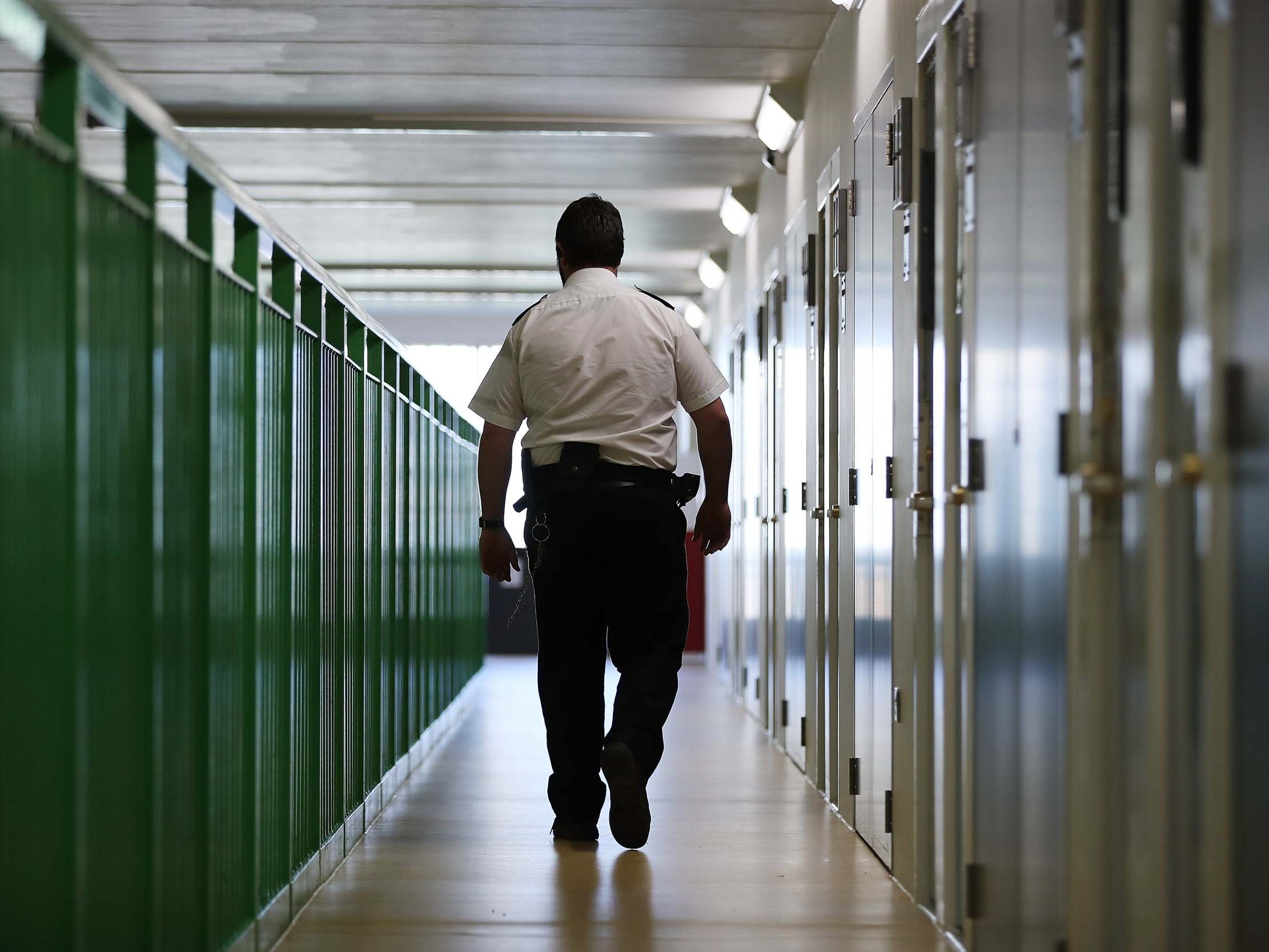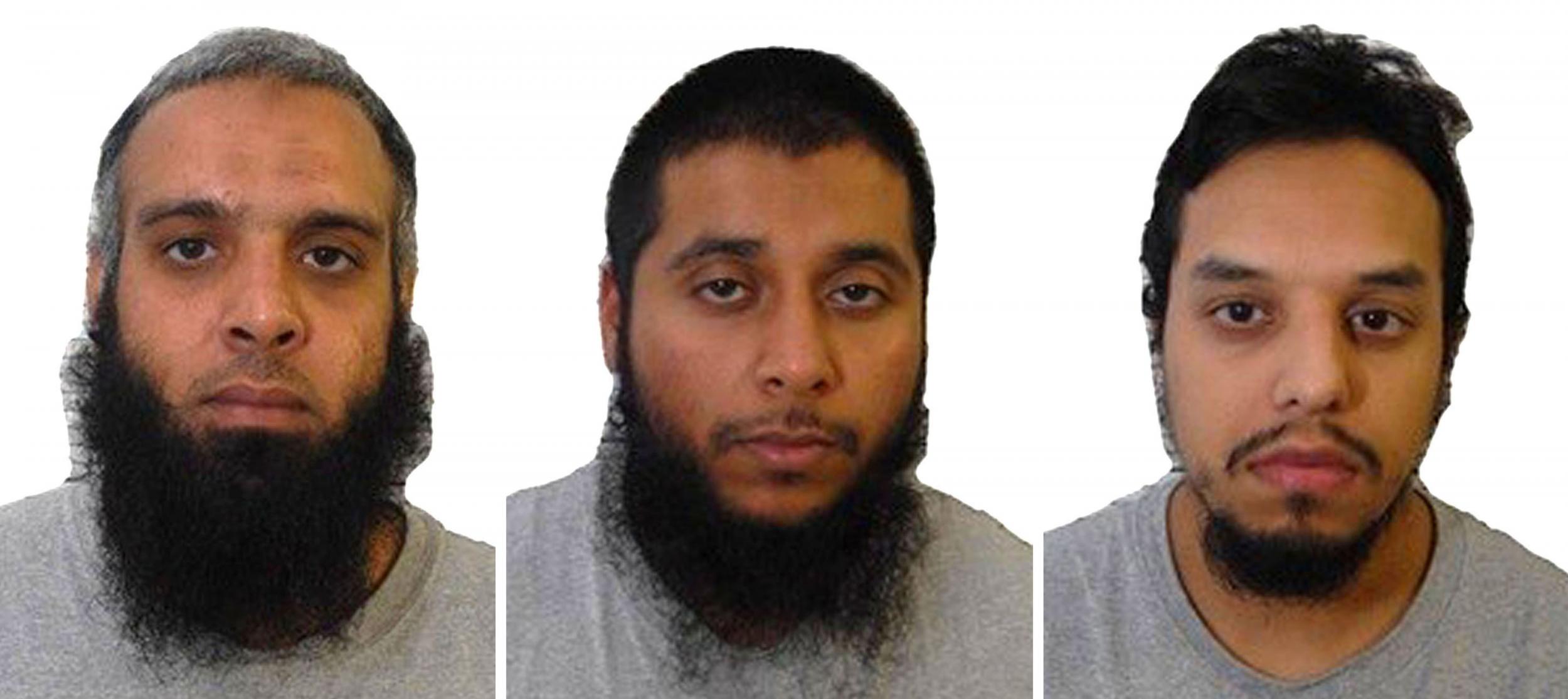Terrorists escaping prosecution for crimes committed inside prison, watchdog warns
Exclusive: Prison officer tells The Independent police are ‘reluctant’ to get involved in jails, while governors ‘want to keep a lid on what’s happening’

Terror offenders are not being prosecuted for crimes committed in prison, including making weapons and glorifying terrorism, a report has revealed.
Jonathan Hall QC, the independent reviewer of terrorism legislation, said opportunities were being lost to delay the release of dangerous inmates or jail them for new offences.
The report found that failing to act on reports about potential offences in prison were causing “lost opportunities to mitigate risk”.
Crimes that have not been prosecuted include the discovery of homemade weapons, the glorification of terrorism, dissemination of extremist material and possession of illicit phones.
“There are cases where people are coming to the end of their sentence where there is serious concern with the risk they pose,” Mr Hall told The Independent.
“One of the ways of keeping them in prison for longer is by prosecuting them for a new offence, if it has happened in prison.”
He said he “became aware” that things that would have been investigated and prosecuted if they had taken place outside prison weren’t always being processed with a view to prosecution if they happened inside.
A prison officer working in the high-security estate told The Independent he agreed with the assessment, adding: “That’s pretty much the case anywhere. It comes down to a lack of experience with staff and it’s a case of governors wanting to keep a lid on what’s happening in their jails. They think ‘let’s just sit on it’, ‘monitor’ is the buzzword.”
The officer said staff who reported potential crimes got “deflated” when action was not taken and became less likely to act on future incidents.
He added: “The police are very reluctant to get involved because they think, ‘Is it in the public interest? They are already in a prison’.”
The report found that some incidents were referred to internal prison disciplinary processes rather than being investigated as possible crimes.
Mr Hall said there was a “risk of missed opportunities”, as well as a knock-on effect on the information shared with other agencies when extremists are released.
His review was commissioned after the Fishmongers’ Hall attack, where Usman Khan stabbed two people to death at a rehabilitation event in November.

It was the first of at least four alleged terror attacks committed by serving or freed prisoners in England within the past 10 months.
Mr Hall made a series of recommendations to improve the monitoring of released terror offenders, and other criminals deemed to be at risk of committing terror-related crimes.
“Terrorists are going to be living amongst us for a very long time on licence and they can’t always be subject to the most intense monitoring, because the resources won’t always be there,” he told The Independent.
“The very main point is the need to make sure that the people who have got the powers for dealing with released offenders have all the information.”
Mr Hall called for changes to multi-agency public protection arrangements (MAPPA), which were originally established for violent and sexual offenders.
The scheme is meant to bring police, probation and prison services together to manage the threat posed by released inmates, but a report released this week said vital information was not always being shared.
It called for clearer means of identifying offenders who pose a terror risk, additional powers to manage them, better availability of mental health treatment and other resources, and improved sharing of sensitive intelligence.
The report found the “flow of information from prisons to those managing risk in the community has been considered unreliable for some time”.
Mr Hall said risk assessments for MAPPA were being carried out by people without access to intelligence held by police and the security services.
“It’s not a very functioning risk assessment if someone doesn’t know what is going on,” he added.

“Risk assessment has got to be a holistic approach, particularly the cases where people haven’t been convicted of terror offences but have been identified as carrying a terrorist risk.”
Mr Hall warned of the threat from inmates who had become radicalised in prison, and those who were prosecuted for offences unrelated to terrorism as a “disruption” tactic because evidence of their extremist activities was not strong enough.
“People can move from being ordinary prisoners to terrorist prisoners at any stage in their journey,” he added. “I saw examples of people equally dangerous [as terrorists] who are not convicted of terror offences.”
Mr Hall said that deradicalisation schemes should be widened to include extremists who have not been convicted of terror offences, although the Fishmongers’ Hall attacker’s compliance with such programmes raised questions over their effectiveness.
His report warned that officials may be putting too much emphasis on “good behaviour” while in jail when assessing inmates, and mitigating a set list of factors thought to increase risk.
Khan had been jailed in 2012 as one of a nine-man terror cell who plotted to bomb targets including the London Stock Exchange, and was released automatically from prison almost a year before his eventual attack last year.
An alleged terror attack took place in January 2020 on prison guards by two inmates at HMP Whitemoor in Cambridgeshire.
In February, terror offender Sudesh Amman was shot dead after launching a knife attack in Streatham days after he was released from jail.
Another recently freed prisoner, Khairi Saadallah, is accused of murdering three victims in an alleged terror attack in Reading in June.
Ian Acheson, a former prison governor who carried out a 2016 review of Islamist extremism, warned this week that the threat of radicalisation inside prisons was growing.
“Insufficient staff, poorly trained and lacking confidence, have been unable to counter the spread of hateful ideologies peddled by sophisticated and charismatic prisoners,” he wrote in an essay published by the Civitas think-tank.
“The offending behaviour tools which have been created to help extremists tackle their identity-based offending are at best generic and primitive, and at worst able to be manipulated by offenders to feign disengagement.”
He said that some jails had “become incubators for extremism, allowing radicalisers and prisoners vulnerable to hateful and anti-British ideas relatively free access to each other”.
Mr Acheson raised concern that increased terror sentences currently being considered by parliament “might actually increase their dangerousness in custody and on release”.
Naweed Ali, Khobaib Hussain and Mohibur Rahman were jailed in 2017 for plotting a terror attack on a police or military target – after meeting in jail.
A Ministry of Justice spokesperson said: “This government is doing more than any before it to protect the public from terrorists. We have ended early release and will introduce a 14-year minimum sentence for the most dangerous terrorists – and we will shortly be announcing additional measures to tackle this scourge further.
“We will always punish those who break the rules in prison, including referring them to the police where appropriate.”
Bookmark popover
Removed from bookmarks